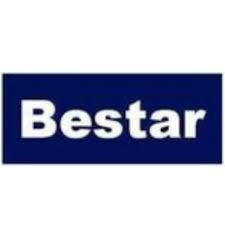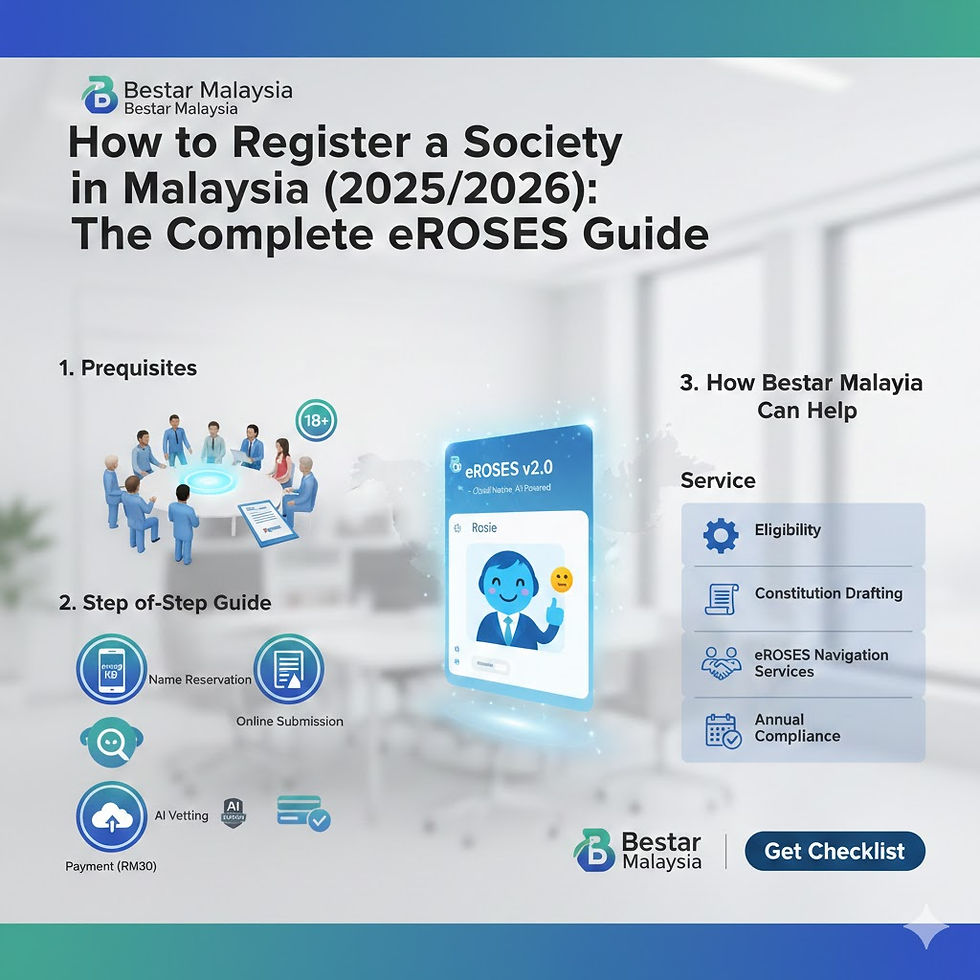Malaysia Corporate Tax Rates Explained
- Roger Pay
- Apr 22, 2025
- 6 min read
Corporate Income Tax 2024/2025
The corporate income tax (CIT) in Malaysia for the Year of Assessment (YA) 2024 and 2025 is structured with different rates based on the residency status and the size of the company.
Corporate Income Tax Rates for YA 2024 & 2025:
Resident Companies:
For companies with a paid-up capital of RM2.5 million or less and gross business income not exceeding RM50 million:
15% on the first RM150,000 of chargeable income.
17% on the next RM450,000 of chargeable income (income between RM150,001 and RM600,000).
24% on chargeable income exceeding RM600,000.
For other resident companies (those that do not meet the above criteria): 24% on all chargeable income.
Non-Resident Companies: 24% on all chargeable income derived from Malaysia.
Crucial Conditions for Preferential Tax Rates for Resident Small and Medium-Sized Companies (SMEs) in Malaysia, effective from Year of Assessment (YA) 2024
To qualify for preferential tax rates, these companies must not be part of a group where any related entity has over RM2.5 million in paid-up capital. Additionally, starting from YA 2024, foreign ownership (by non-Malaysian incorporated companies or non-Malaysian citizens) cannot exceed 20% of the company's paid-up capital.
To reiterate and for clarity:
Preferential Corporate Income Tax Rates for Resident SMEs (YA 2024 & 2025):
For a resident company to qualify for the 15% and 17% preferential tax rates, it must meet the following criteria:
Paid-up Capital and Gross Income Threshold: The company must have a paid-up capital of RM2.5 million or less and gross business income not exceeding RM50 million.
Group of Companies Restriction: The company must not be part of a group of companies where any of their related companies have a paid-up capital of more than RM2.5 million. This ensures that the preferential rates are targeted towards genuinely smaller entities and not larger groups operating through smaller subsidiaries.
Foreign Ownership Limitation (w.e.f. YA 2024): Effective from Year of Assessment 2024, no more than 20% of the company's paid-up capital can be owned (directly or indirectly) by:
Companies incorporated outside Malaysia.
Non-Malaysian citizens.
This recent amendment aims to further focus the benefits on Malaysian-owned and controlled SMEs.
Therefore, a company meeting the paid-up capital and gross income thresholds might still be subject to the standard corporate income tax rate of 24% if it is part of a larger group exceeding the paid-up capital limit or if its foreign ownership exceeds the 20% threshold (for YA 2024 and onwards).
It's essential to consider all these conditions when determining the applicable corporate income tax rate in Malaysia.
Important Notes:
A company is considered a tax resident in Malaysia if its management and control are exercised in Malaysia, typically where the directors' meetings concerning the company's management and control are held.
Malaysia adopts a territorial tax system, meaning that both resident and non-resident companies are generally taxed on income derived from operations within Malaysia. Resident companies are also taxed on foreign-sourced income received in Malaysia, although there are specific exemptions for certain types of foreign-sourced income received by resident companies from 1 January 2022 to 31 December 2026, provided certain conditions are met (e.g., the income has been subject to tax in the country of origin).
The Malaysian Budget 2025, tabled on 18 October 2024, did not announce changes to the headline corporate income tax rates. However, it did propose a 2% tax on dividend income exceeding MYR 100,000 annually for resident and non-resident individuals, effective from YA 2025. Exemptions apply to foreign dividends and distributions from companies with pioneer status.
Tax Incentives:
Malaysia offers various tax incentives to attract investment in specific sectors. These include:
Pioneer Status (PS): Provides income tax exemption on a certain percentage (e.g., 70% or 100%) of statutory income for a specified period (e.g., 5 or 10 years). The remaining statutory income is taxed at the standard rate.
Investment Tax Allowance (ITA): Grants an allowance on qualifying capital expenditure incurred within a specific period (e.g., 5 or 10 years), which can be used to set off against a certain percentage (e.g., 70% or 100%) of statutory income. The remaining statutory income is taxed at the standard rate.
Reinvestment Allowance: For existing locally owned companies reinvesting in manufacturing, an allowance of 60% on qualifying capital expenditure is granted and can be utilized against 70% of statutory income.
Principal Hub Incentive: Offers preferential corporate income tax rates (0%, 5%, or 10%) for a specified period to eligible companies establishing principal hubs in Malaysia.
The specific incentives and their conditions vary depending on the qualifying industry and the nature of the investment.
Corporate Tax Filing Deadline:
The deadline for submitting the corporate income tax return (Form e-C) for the Year of Assessment 2025 is within seven months from the date following the close of the company's accounting period. For e-filing, an additional one month is typically given, making it eight months from the date following the close of the accounting period.
For example, if a company's financial year ends on 31 December 2024, the deadline for e-filing the YA 2025 tax return would generally be by 31 August 2025.
Companies are also required to submit an estimate of their tax payable (Form CP 204) 30 days before the beginning of the basis period (which usually aligns with the financial year). Revised estimates (Form CP 204A) can be submitted in the 6th, 9th, or 11th month of the basis period (effective from YA 2024).
It is crucial for companies to adhere to these deadlines to avoid penalties.
How Bestar can Help
Malaysia Corporate Tax Rates Explained
Bestar can provide significant help to companies navigating the complexities of Corporate Income Tax (CIT) for the Year of Assessment (YA) 2024 and 2025 in Malaysia. Here's a breakdown of how we can assist:
1. Understanding and Applying Tax Regulations:
Interpretation of Laws: Tax laws and regulations can be intricate and subject to interpretation. Bestar stays updated on the latest tax legislation, amendments, and guidelines issued by the Inland Revenue Board of Malaysia (LHDN). They can accurately interpret these rules and explain their implications for your specific business.
Identifying Applicable Tax Rates: As we've discussed, the CIT rates in Malaysia vary based on residency status and company size. Bestar can correctly determine the applicable tax rate for your company in YA 2024 and 2025, considering factors like paid-up capital, gross income, and group structure.
Navigating Specific Conditions: We can ensure your company meets all the conditions for preferential tax rates for SMEs, including the restrictions on group company size and foreign ownership (effective YA 2024).
2. Tax Planning and Optimization:
Identifying Tax-Efficient Structures: Bestar can advise on business structures and strategies that can potentially minimize your company's tax liability within the legal framework.
Utilizing Tax Incentives: Malaysia offers various tax incentives (Pioneer Status, Investment Tax Allowance, Reinvestment Allowance, etc.). Bestar can identify incentives your company may be eligible for and guide you through the application process to maximize these benefits.
Timing of Transactions: We can advise on the optimal timing of certain business transactions to potentially reduce tax burdens or defer tax liabilities.
Cross-Border Tax Implications: For companies with international operations, Bestar can help navigate complex cross-border tax rules, double taxation agreements, and transfer pricing regulations to ensure compliance and optimize tax efficiency.
3. Ensuring Compliance and Avoiding Penalties:
Accurate Tax Computation: Bestar can accurately calculate your company's chargeable income and the resulting tax liability, minimizing the risk of errors that could lead to penalties.
Proper Documentation: We can advise on the necessary documentation and record-keeping requirements to support your tax filings, ensuring compliance with LHDN regulations.
Meeting Filing Deadlines: Bestar is well-aware of the crucial tax filing deadlines (Form e-C and Form CP 204/CP 204A) for YA 2025 and can help ensure timely submission, avoiding late filing penalties.
Handling Tax Audits: In the event of a tax audit by the LHDN, Bestar can represent your company, manage the process, and ensure your rights are protected.
4. Staying Updated on Changes:
Monitoring Legislative Updates: Tax laws and regulations are subject to change. Bestar continuously monitors these updates and inform you of any new requirements or amendments that may affect your company's tax obligations.
Adapting to New Rulings and Guidelines: We stay informed about new tax rulings, interpretations, and guidelines issued by the LHDN, ensuring your company's tax practices remain compliant.
In summary, engaging Bestar for Corporate Income Tax in Malaysia for YA 2024 and 2025 can help your company:
Minimize tax liabilities legally.
Ensure full compliance with Malaysian tax laws and regulations.
Avoid costly errors and penalties.
Save time and resources by outsourcing complex tax matters.
Make informed financial decisions based on expert tax advice.
Navigate the complexities of tax incentives and cross-border taxation.
Stay updated on the ever-evolving tax landscape.
By leveraging the expertise of Bestar , your company can confidently navigate the Malaysian corporate income tax system and focus on its core business operations.




Comments